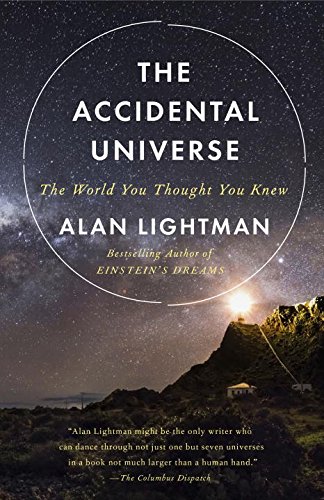Maria Popova in Brain Pickings:
1. THE ACCIDENTAL UNIVERSE
 “If we ever reach the point where we think we thoroughly understand who we are and where we came from,” Carl Sagan wrote in his timeless meditation on science and religion, “we will have failed.” It’s a sentiment that dismisses in one fell Saganesque swoop both the blind dogmatism of religion and the vain certitude of science — a sentiment articulated by some of history’s greatest minds, from Einstein to Ada Lovelace to Isaac Asimov, all the way backGalileo. Yet centuries after Galileo and decades after Sagan, humanity remains profoundly uneasy about reconciling these conflicting frameworks for understanding the universe and our place in it.
“If we ever reach the point where we think we thoroughly understand who we are and where we came from,” Carl Sagan wrote in his timeless meditation on science and religion, “we will have failed.” It’s a sentiment that dismisses in one fell Saganesque swoop both the blind dogmatism of religion and the vain certitude of science — a sentiment articulated by some of history’s greatest minds, from Einstein to Ada Lovelace to Isaac Asimov, all the way backGalileo. Yet centuries after Galileo and decades after Sagan, humanity remains profoundly uneasy about reconciling these conflicting frameworks for understanding the universe and our place in it.
That unanswerable question of where we came from is precisely what physicistAlan Lightman — one of the finest essayists writing today and the very first person to receive dual appointments in science and the humanities at MIT — explores from various angles in The Accidental Universe: The World You Thought You Knew (public library | IndieBound).
At the intersection of science and philosophy, the essays in the book explore the possible existence of multiple universes, multiple space-time continuums, more than three dimensions. Lightman writes:
Science does not reveal the meaning of our existence, but it does draw back some of the veils.
[…]
Theoretical physics is the deepest and purest branch of science. It is the outpost of science closest to philosophy, and religion.
More here.
